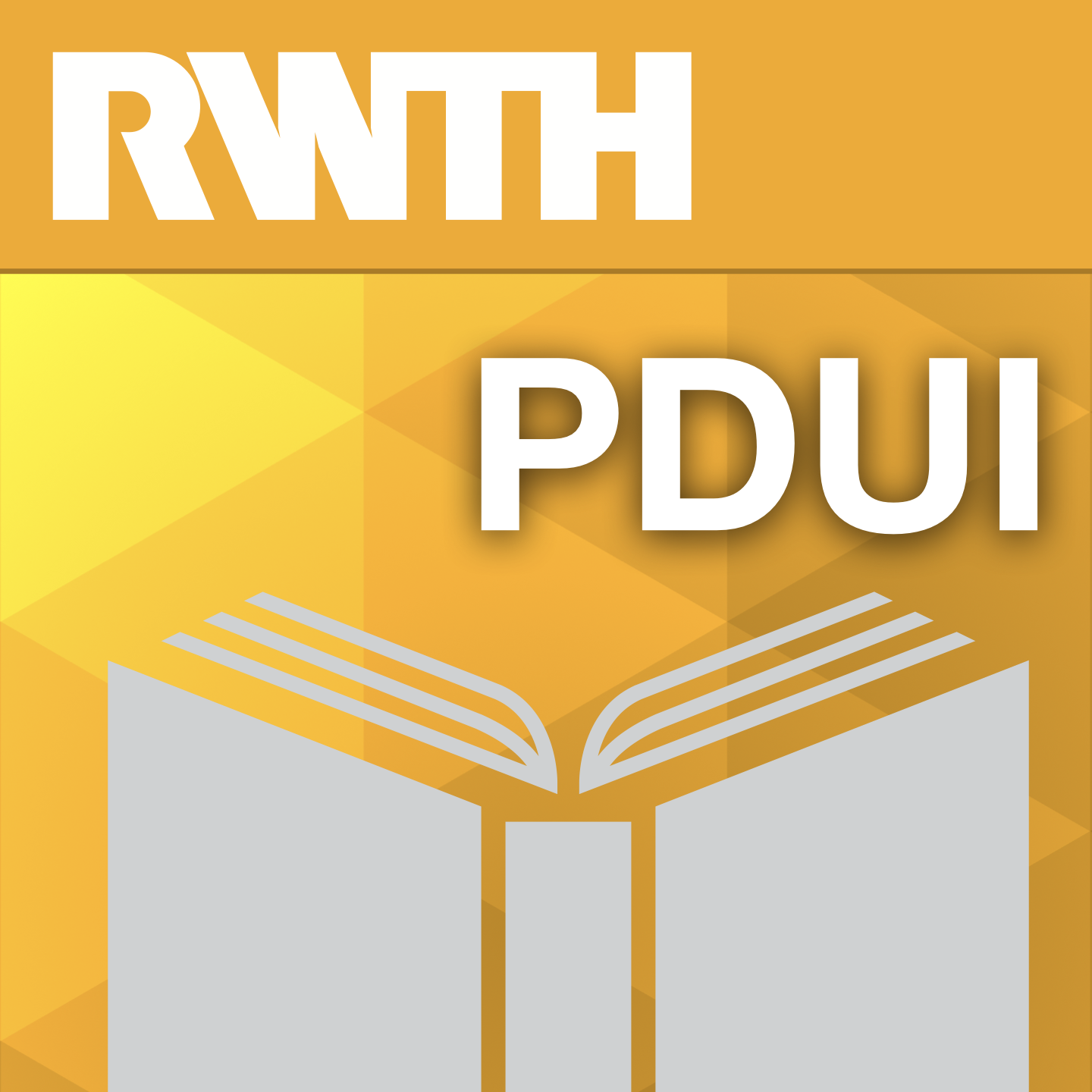Seminar: Post-Desktop User Interfaces (Summer 2022)
Course Information
| Presentations | Wed, 14:30 - 16:00 |
| Zoom | |
| Language | English |
| Credits | 4/5 |
Events
| Kick-Off Meeting | Wed, March 30th 14:30 |
| Lecture: Literature Review & Scientific Writing | Mon, April 4th 14:30 |
| Lecture: How to Do a Good Presentation | Mon, April 11th 14:30 |
Resources
In this seminar, you will learn about research topics currently being tackled in the international Human-Computer Interaction research community. You will gain in-depth knowledge about one HCI area through your own seminar topic, and will learn about numerous others through other students' talks. We also pay extra attention to helping you refine your scientific writing and presentation skills, and you will work on your topic in groups of two, providing another opportunity to learn how to work more productively as a team.
For any questions about the class, please contact René Schäfer.
Presentation Dates
Grading
Your grade will be calculated as follows. Both parts have to be better than 5.0 to pass the course.
| Written Report | 50% |
| Presentation | 50% |
Fields of Study
- Informatik (M.Sc.)
- Media Informatics (M.Sc.)
- System Software Engineering (M.Sc.)
- Technik-Kommunikation (M.Sc.)
- Data Science (M.Sc.)
- Informatik Lehramt (M.Sc.)
- Erasmus (M.Sc.)
- Informatik (B.Sc.) (if you already attended a Proseminar)
Attendance Policy
To pass the course, you need to attend all presentations.
Course Requirements
Please read the Ethical Guidelines for the Authoring of Academic Work (Ethische Richtlinien für das Verfassen wissenschaftlicher Arbeiten) and submit a signed Declaration of Compliance to RWTHmoodle.
The RWTH CS library offers a course on literature review (Literaturrecherche für Informatiker). This course is mandatory for all Bachelor students to participate in our seminar.
Additional Information
Required Reading (before kick-off meeting):
"How to Read an Engineering Research Paper"
Submission Milestones
All submissions have to be uploaded to RWTHMoodle on the respective day by 11:59 pm.
Literature Review & Outline
Prepare 10+ topic-related research papers with a 30 word contribution and benefits statement stating the contribution type. Provide a clear structure of the final paper submission. What is the storyline you want to convey? How are you introducing the topic? What are the arguments you are providing? How are you connecting the papers to each other and your arguments? Include your papers into this structure.
Introduction & First Paper
Prepare the first sections of your final paper! Prepare the Introduction Chapter and the report of the first found paper you found during your literature review. This is your chance to get feedback on your writing style.
Camera-Ready Presentation Slides
The complete version of your presentation slides (Powerpoint, Keynote, Prezi, ....). Hand in slides which you would confidently use for a presentation on the next day.
Presentation (50% of Grade)
You present in front of your fellow students and your supervisor. We expect a well-prepared presentation. Presentation time will be 30 minutes, followed by a discussion where you will receive feedback and questions from your supervisor and your peers. We encourage a constructive feedback interaction where you can learn from each other and have a friendly conversation on how to improve your presentation style.
Paper Submission (50% of Grade)
Your paper submission should contain 15 content pages in the ACM Extended Abstract Template. We expect you to submit a final version without spelling mistakes, with a clear flow of argumentation, a complete bibliography, and including all figures.
You have to use Overleaf to work cooperatively on your paper.
Milestone Dates
For the milestones "Literature Review and Report Outline", "Test Presentation" and "Paper Review" you can get feedback from your supervisor. For this, make an appointment for that day.
| Group | Topic | Literature & Outline | Introduction and First Paper | Camera-Ready Presentation Slides | Presentation | Paper Submission |
|---|---|---|---|---|---|---|
| 11 | Textile Interfaces | 13.4.2022 | 20.4.2022 | 27.4.2022 | 4.5.2022 | 18.5.2022 |
| 1 | Force Input | 13.4.2022 | 20.4.2022 | 27.4.2022 | 4.5.2022 | 18.5.2022 |
| 2 | Gaze Interaction | 20.4.2022 | 27.4.2022 | 4.5.2022 | 11.5.2022 | 25.5.2022 |
| 9 | Interaction in Augmented/Virtual Reality | 20.4.2022 | 27.4.2022 | 4.5.2022 | 11.5.2022 | 25.5.2022 |
| 13 | Dark Patterns in HCI Research | 27.4.2022 | 4.5.2022 | 11.5.2022 | 18.5.2022 | 1.6.2022 |
| 8 | Soft Robotics in HCI Research | 27.4.2022 | 4.5.2022 | 11.5.2022 | 18.5.2022 | 1.6.2022 |
| 3 | Smart Jewelry | 4.5.2022 | 11.5.2022 | 18.5.2022 | 25.5.2022 | 15.6.2022 |
| 12 | HCI Research for Personal Fitness | 4.5.2022 | 11.5.2022 | 18.5.2022 | 25.5.2022 | 15.6.2022 |
| 4 | Interaction on Skin | 18.5.2022 | 25.5.2022 | 1.6.2022 | 15.6.2022 | 29.6.2022 |
| 7 | Proxemic Interactions | 18.5.2022 | 25.5.2022 | 1.6.2022 | 15.6.2022 | 29.6.2022 |
| 5 | Extending Everyday Objects | 25.5.2022 | 1.6.2022 | 15.6.2022 | 22.6.2022 | 6.7.2022 |
| 10 | Anthropomorphic Interfaces | 25.5.2022 | 1.6.2022 | 15.6.2022 | 22.6.2022 | 6.7.2022 |
| 14 | HCI Models | 1.6.2022 | 15.6.2022 | 22.6.2022 | 29.6.2022 | 13.7.2022 |
| 6 | Connecting People over Distance | 1.6.2022 | 15.6.2022 | 22.6.2022 | 29.6.2022 | 13.7.2022 |
Example presentation by Marcel Lahaye and Aaron Krämer
Previous Offerings
PDUI Winter 2021 - PDUI Winter 2020 - PDUI Summer 2020 - PDUI Summer 2019 - PDUI Summer 2018 - PDUI Summer 2017 - PDUI Summer 2016 - PDUI Summer 2015 - PDUI Summer 2014 - PDUI Summer 2013


